Question: How might large-scale Retail and Manufacturing spaces be redefined to enhance Vibrancy, Self-Sufficiency and Safety in a Post-Pandemic society?
Preamble
Lockdown measures during COVID-19 emptied large-scale retail malls of people and caused retail businesses to decline. There is a need to rethink future mall typologies to offer safe retail environments and to provide unique retail experiences that offer personalisation while embracing technology.
Large-scale factories were badly affected when lockdown measures disrupted Singapore’s workforce. Being zoned in isolated areas that are far from residential neighbourhoods, these manufacturing spaces became inaccessible to workers during the lockdown. Disruptions to supply chains also significantly impacted our manufacturing industries, surfacing a growing need to be self-sufficient and increase our resilience to import shocks.
My thesis therefore focuses on redefining large-scale Retail and Manufacturing spaces in Singapore to enhance Vibrancy, Self-Sufficiency, and Safety in a post-pandemic society.
Thesis Proposal
This thesis aims to redefine large-scale Retail and Manufacturing spaces in more Granulated Entities by integrating Microfactories and Retail Streets in a Closed Resource Loop, with spaces for Innovation, Learning and Urban Events to engage the community.
Design
The design of the Retail and Manufacturing component is no longer conceived as large-scale spaces zoned in isolated areas but is integrated into residential neighbourhoods as granulated entities within the studio masterplan- FILTER CITY. It consists of an upper datum and a lower datum.
The upper datum comprises of Microfactories lining Retail Streets with spaces for innovation and learning. These high-tech Microfactories allow manufacturers to conduct on-demand manufacturing and exhibit finished products along Retail Streets and vertical Retail Displays, curated to the brands’ preferences. The Retail Streets offer more unique experiences than malls as consumers can customize products on-demand while shopping in safe and well-ventilated streets.
Innovation spaces consist of Makerspaces, Research labs and Demo spaces. These spaces facilitate collaboration between manufacturers and the community as they can prototype new products in Makerspaces and test-bed them at Demo spaces. The Learning Studios also promote out-of-classroom education for the community as learning is conducted directly by manufacturers that run the Microfactories. The inclusion of Urban Events spaces enables product promotions and launches, urban competitions, and recreational events to take place, becoming an exciting meeting place for the community.
The lower datum consists of programs related to the secondary forest such as Makers’ Residences, Nature Café and Retail as well as Nature Observatory decks. This provides a tranquil balance to the upper datum, allowing users to enjoy the secondary forest.
Impact
This thesis redefines large-scale malls and factories in granulated entities that can be integrated within neighbourhoods. It creates a new manufacturing landscape which empowers small and medium-sized local firms to create high value-added products. It further enables collaboration between manufacturers and the community to innovate and learn, grooming talents locally. Coupled with the integration of a closed resource loop turning waste into useful materials, a Self-Sufficient manufacturing landscape is formed which produces local, high value-added products and talents, minimizing reliance on foreign talents and imports.
Vibrancy is enhanced without compromising on Safety as retail streets are open and well-ventilated, breaking away from large-scale enclosed malls. It offers unique retail experiences which transforms retail from one that is transactional into one that offers personalization and superior product discovery experiences. Large public spaces such as demo spaces and urban events spaces engages the public, becoming an exciting meeting place for the community. Retail is thus transformed from an enclosed, deep-plate shopping mall into a vibrant and safe spatial typology which integrates retail streets and microfactories with spaces for innovation, learning and urban events to engage the community.
This project is part of a larger Filter City Masterplan by Prof Joseph Lim’s studio.
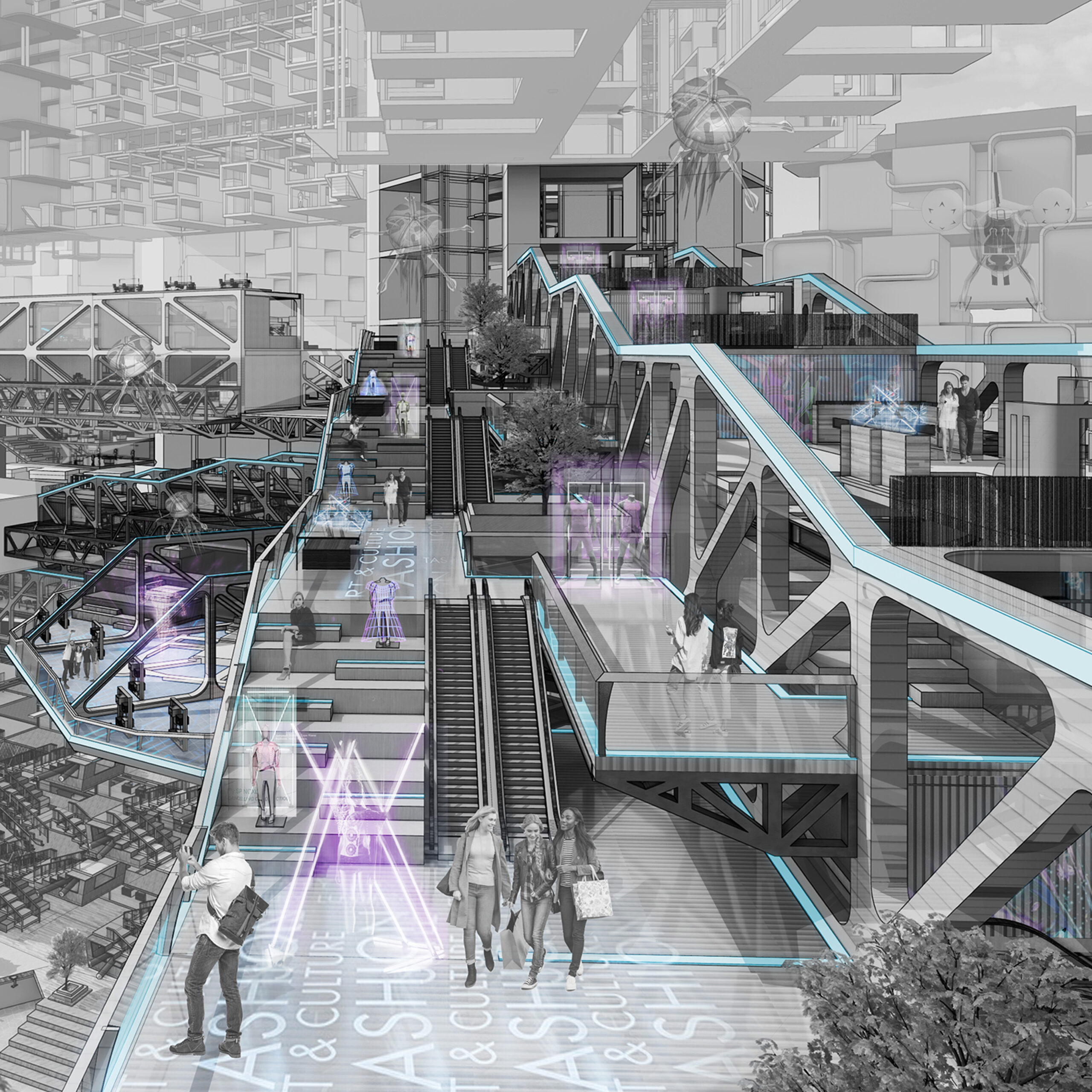
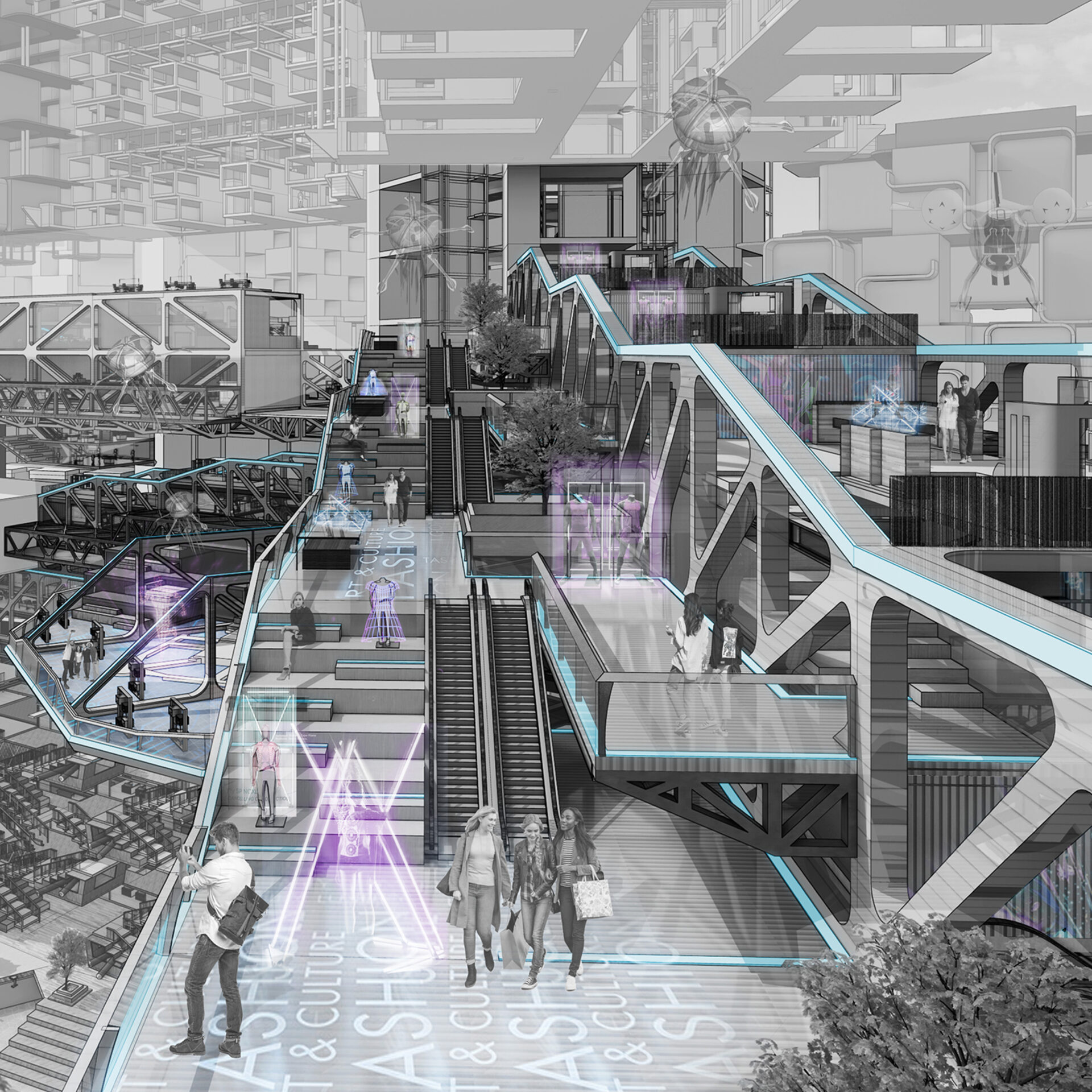
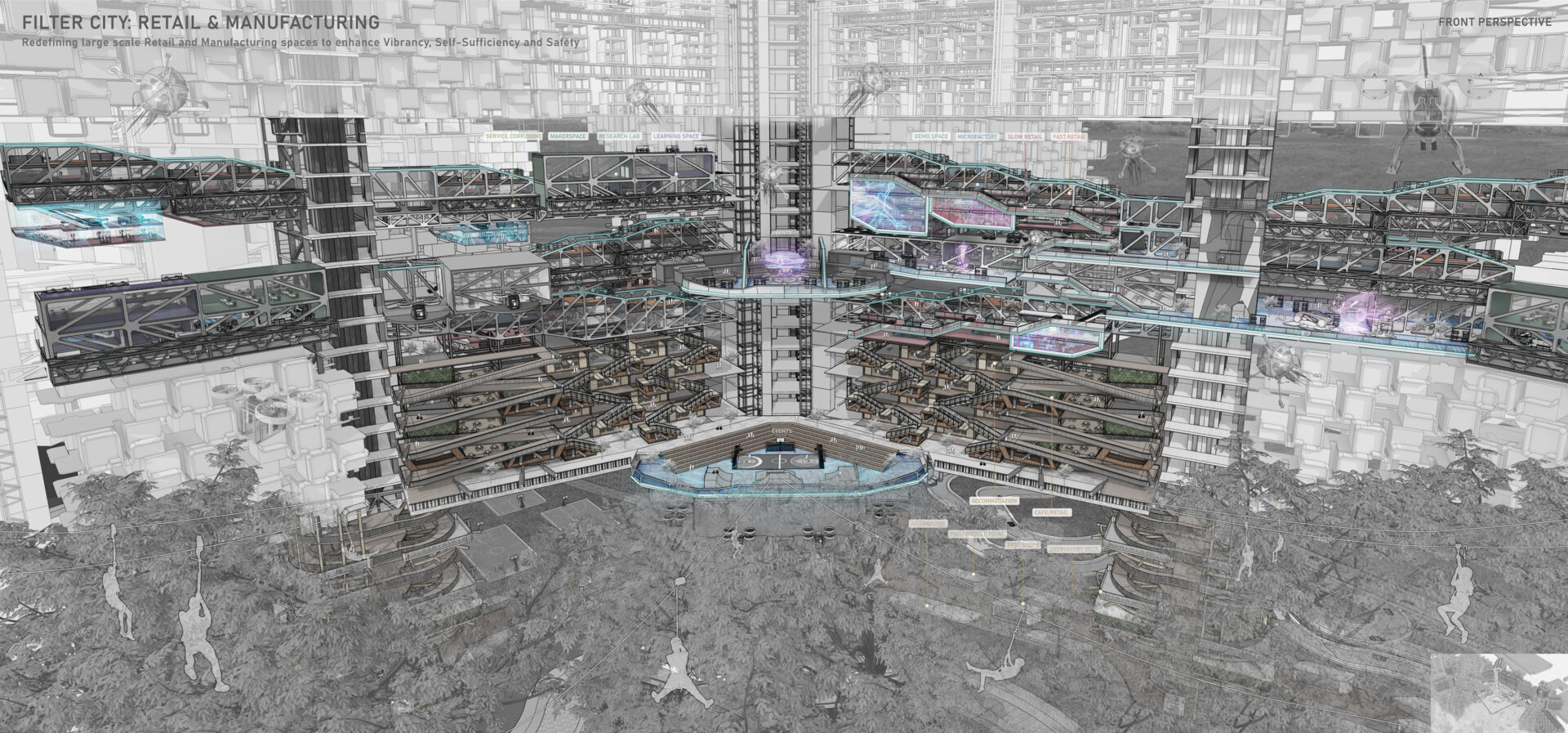
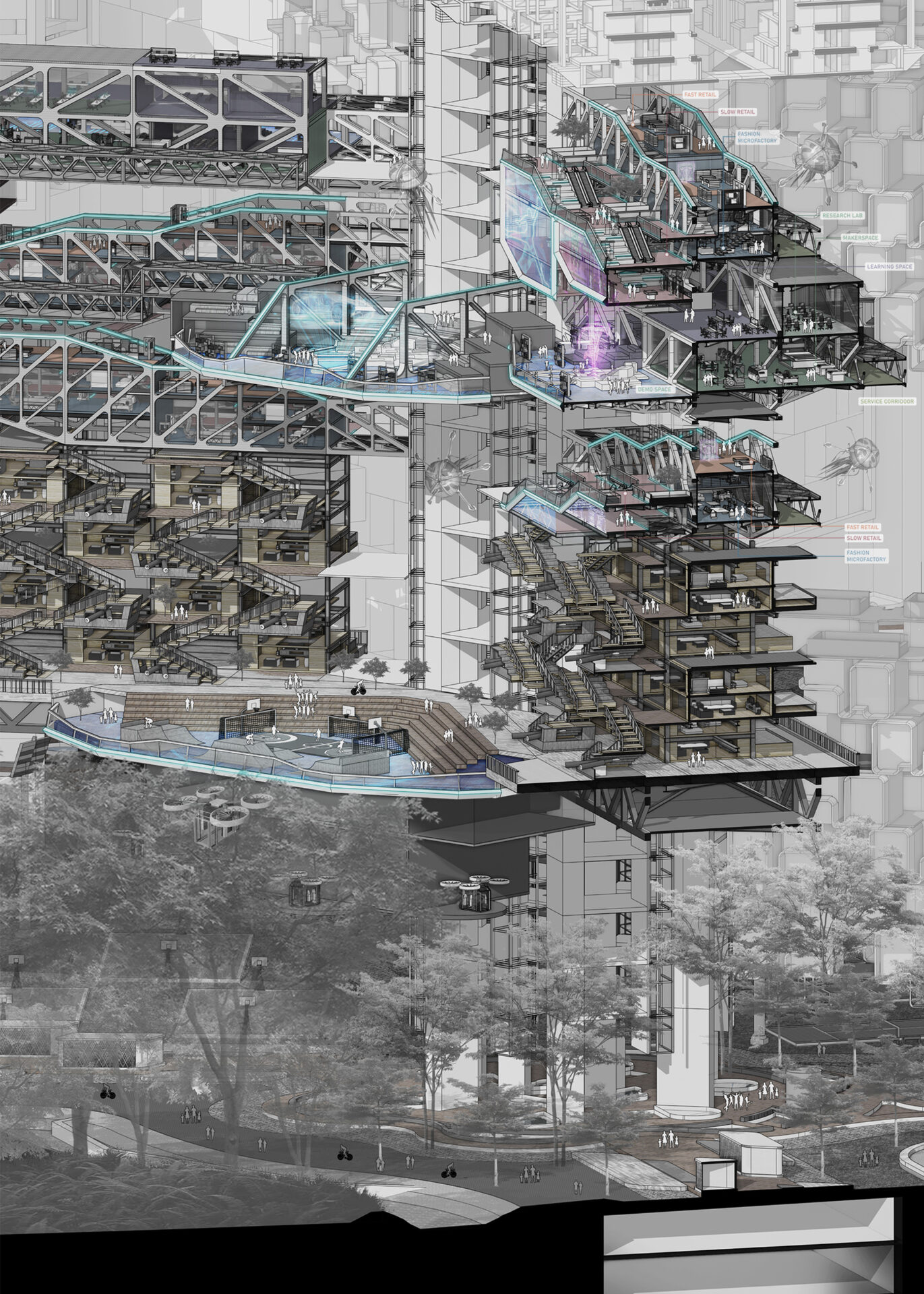
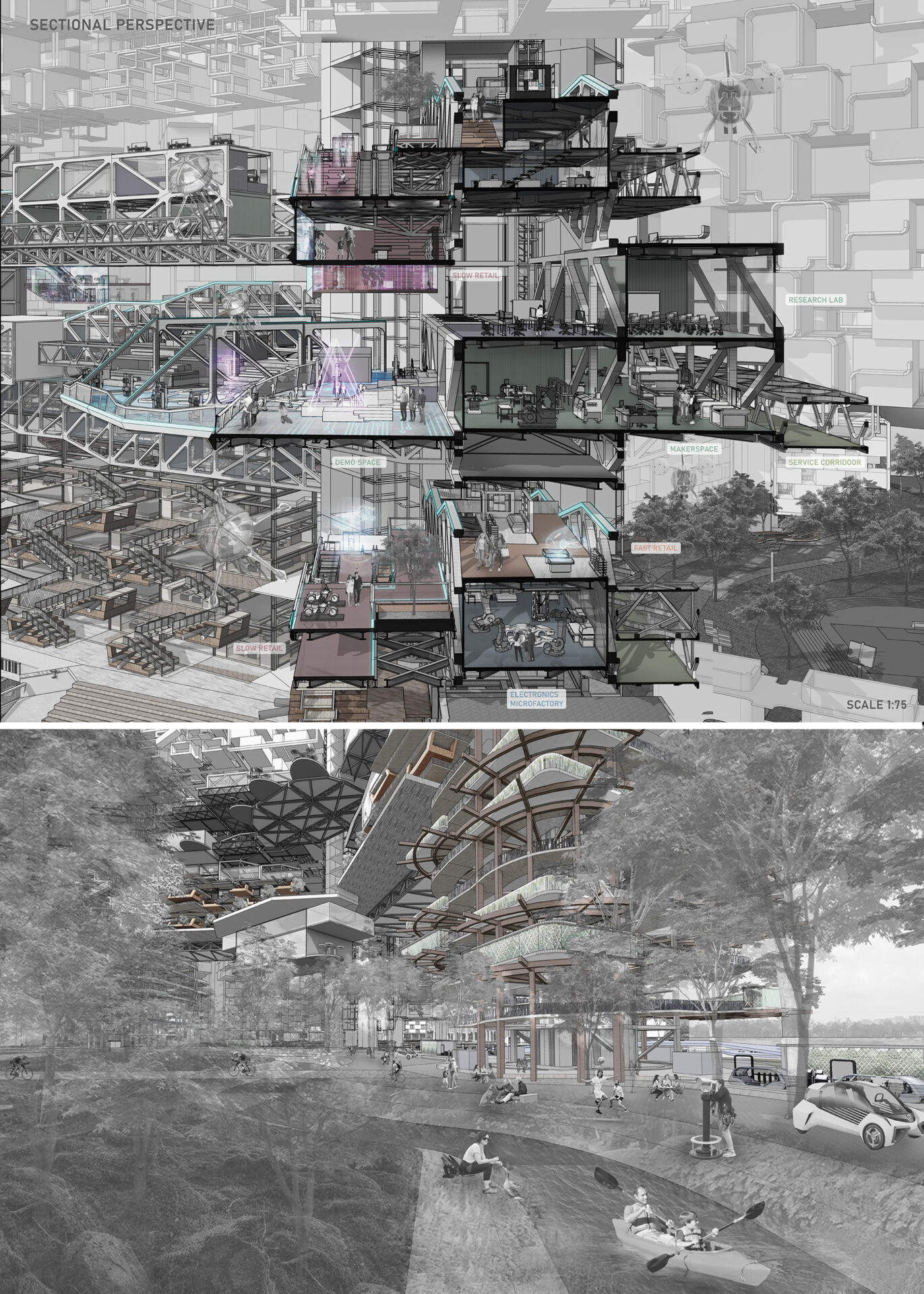
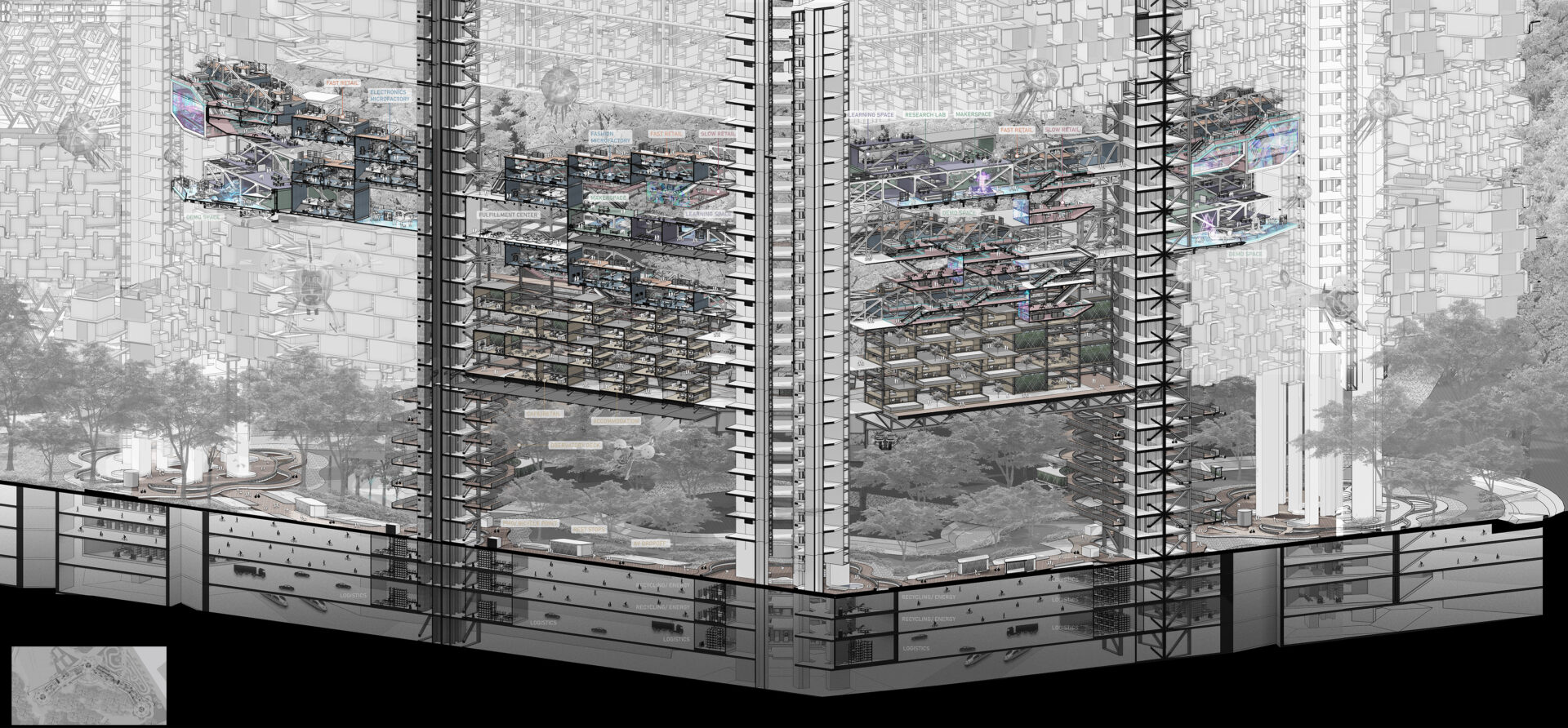
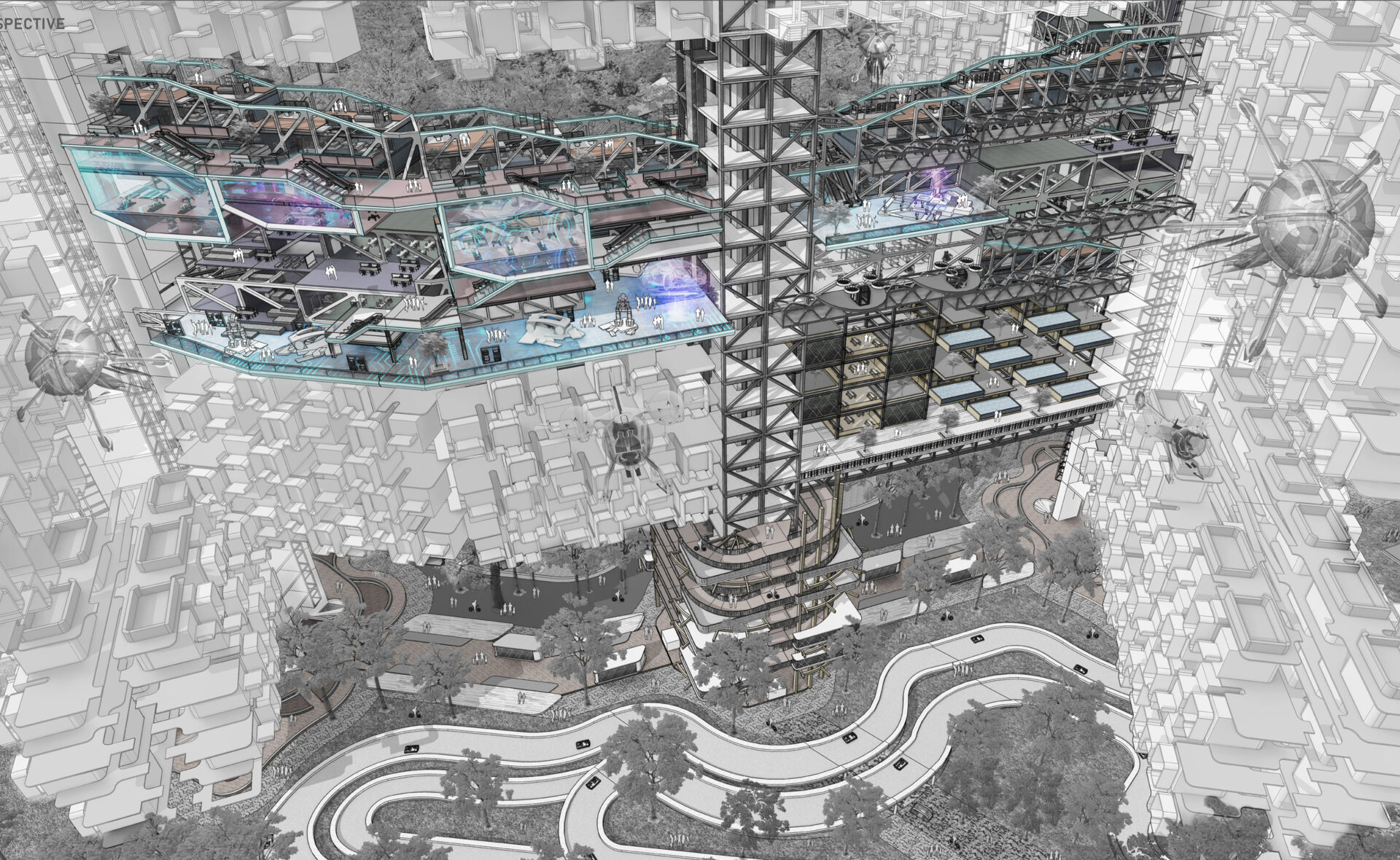
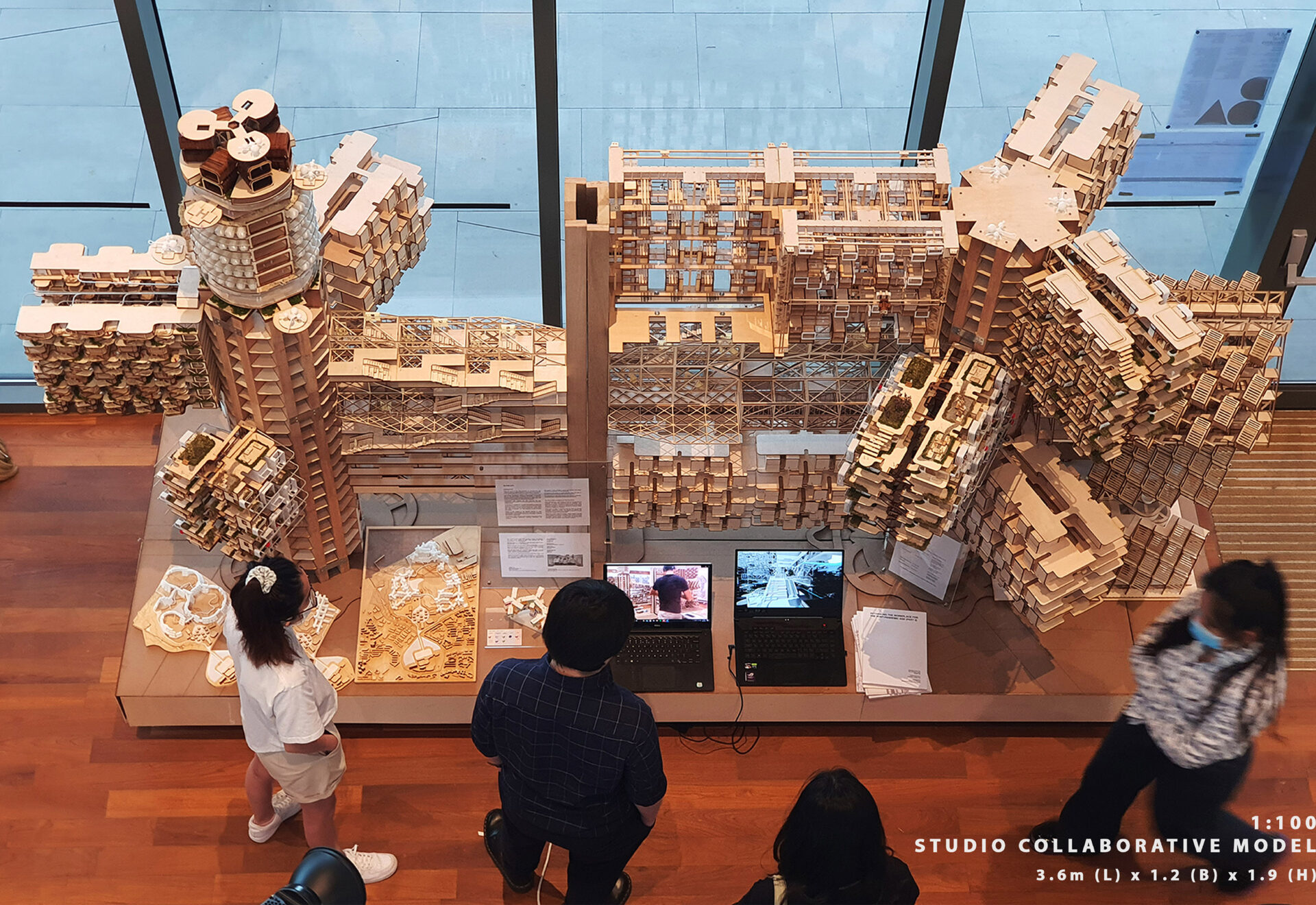
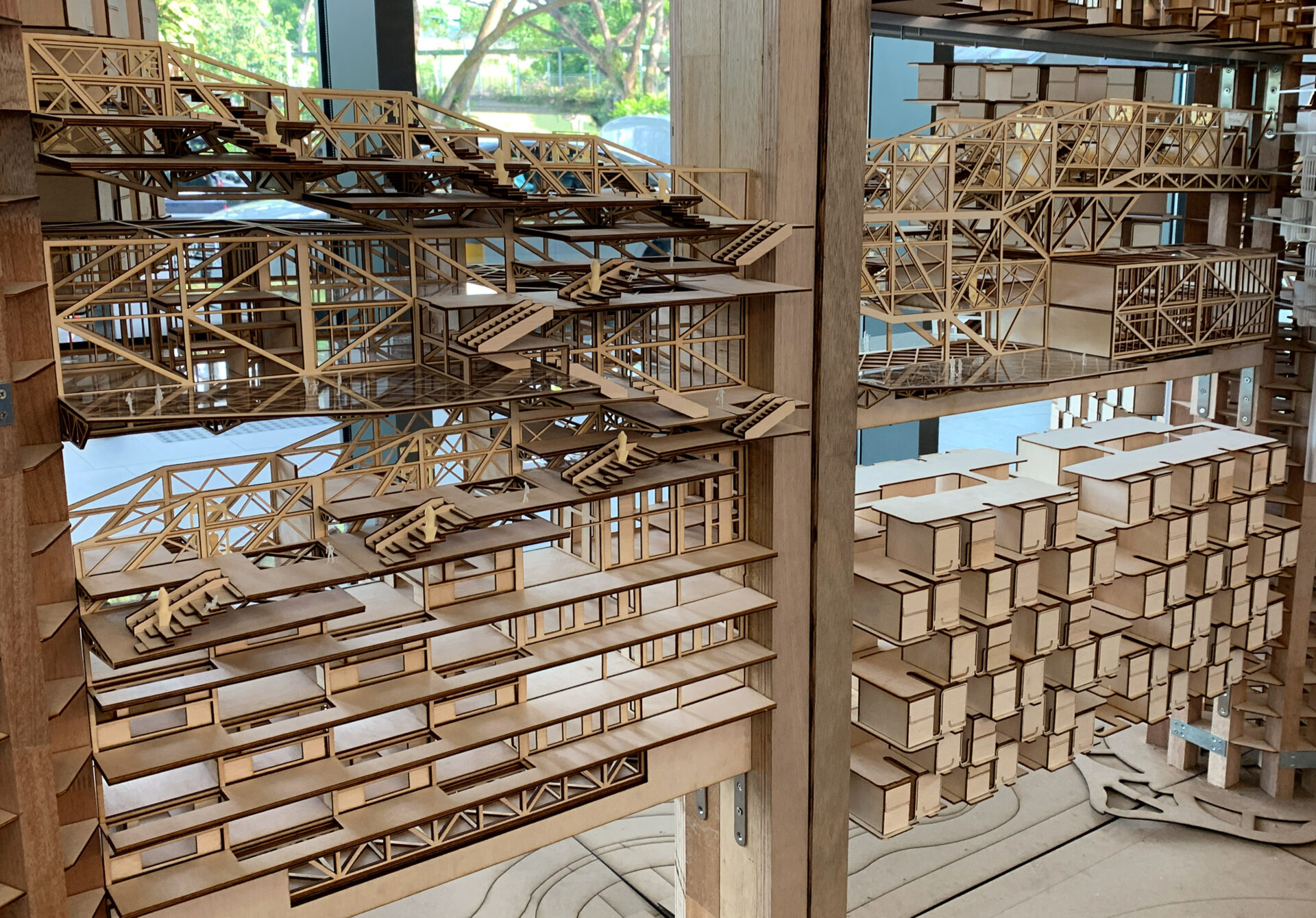
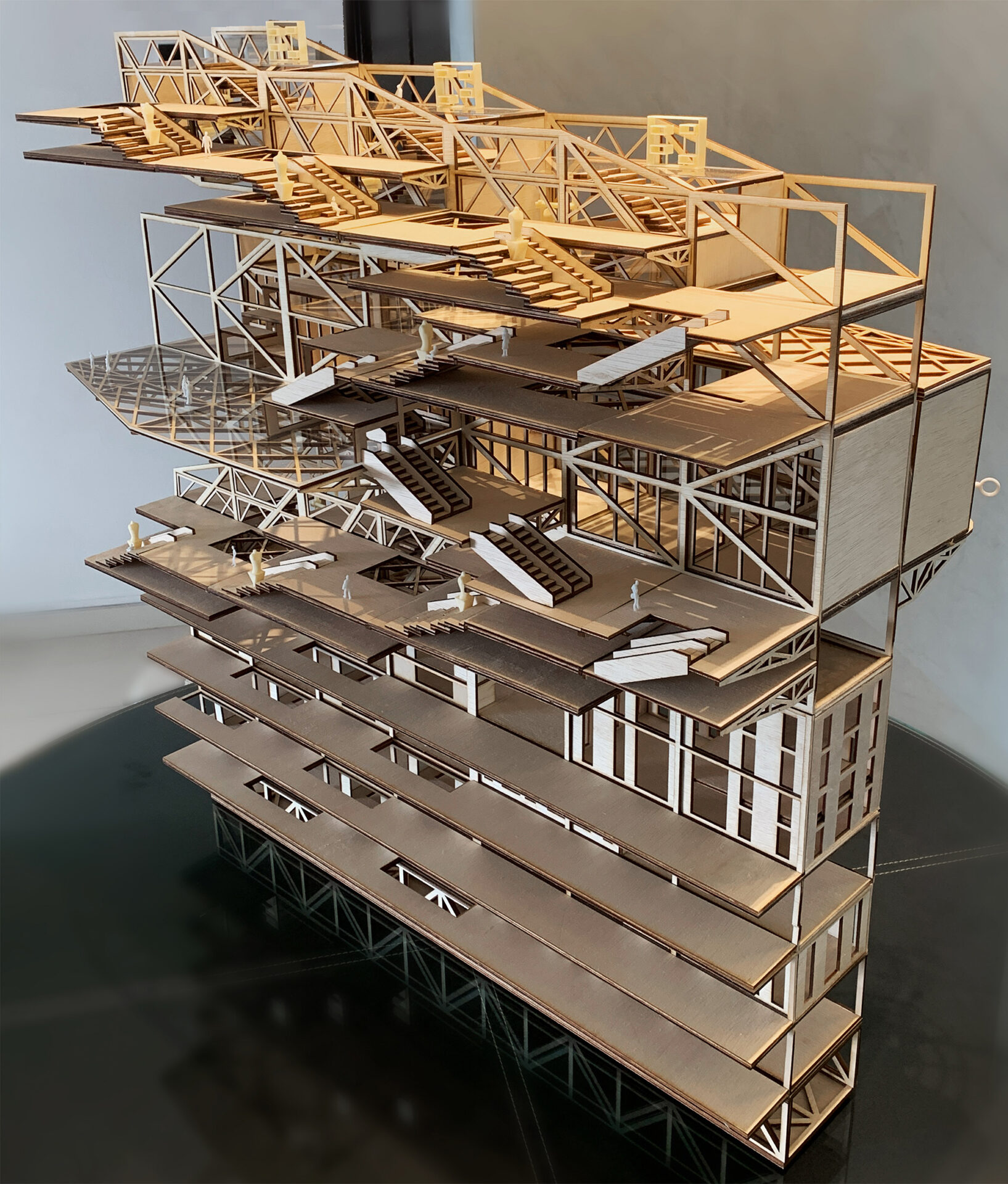
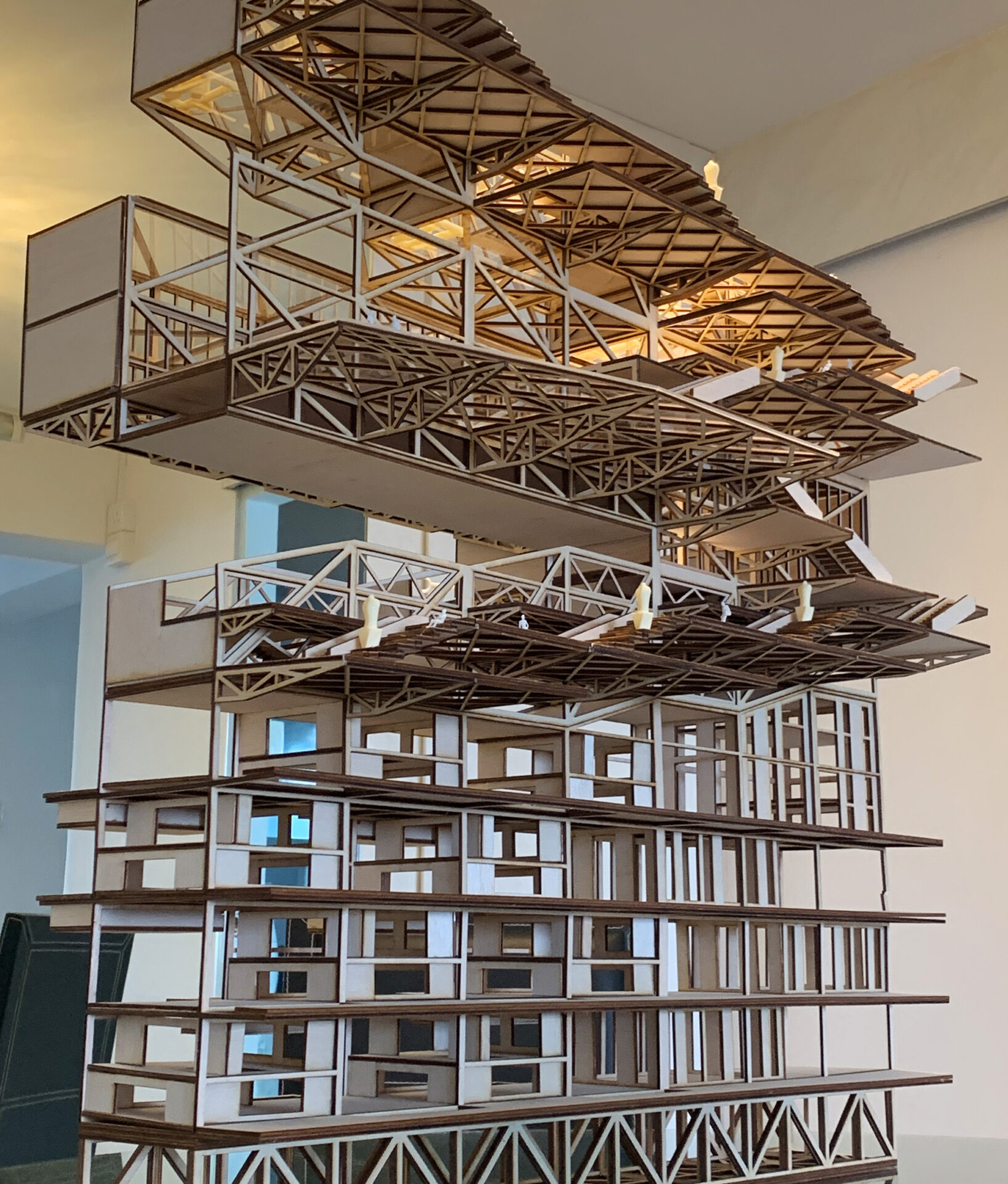
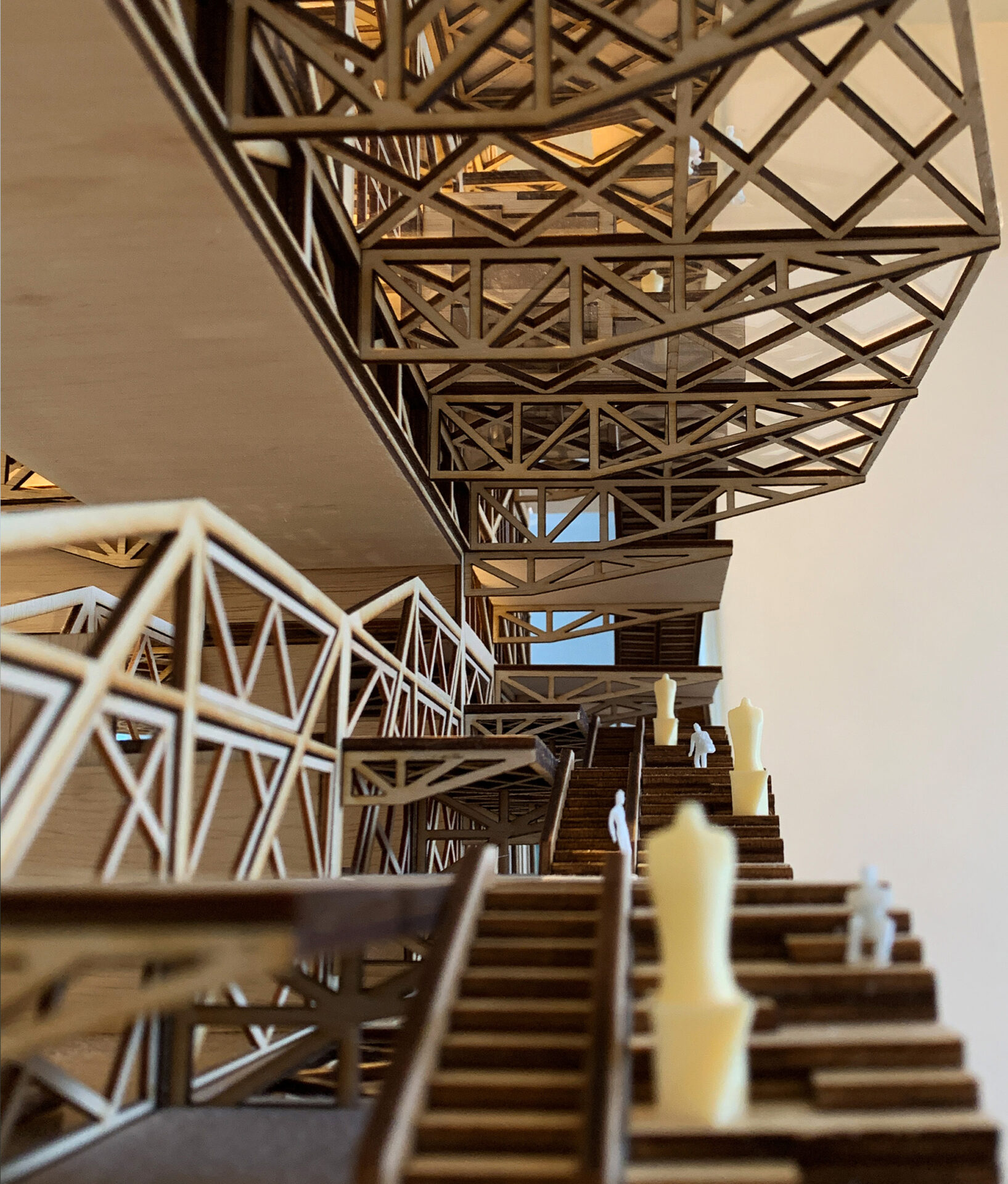
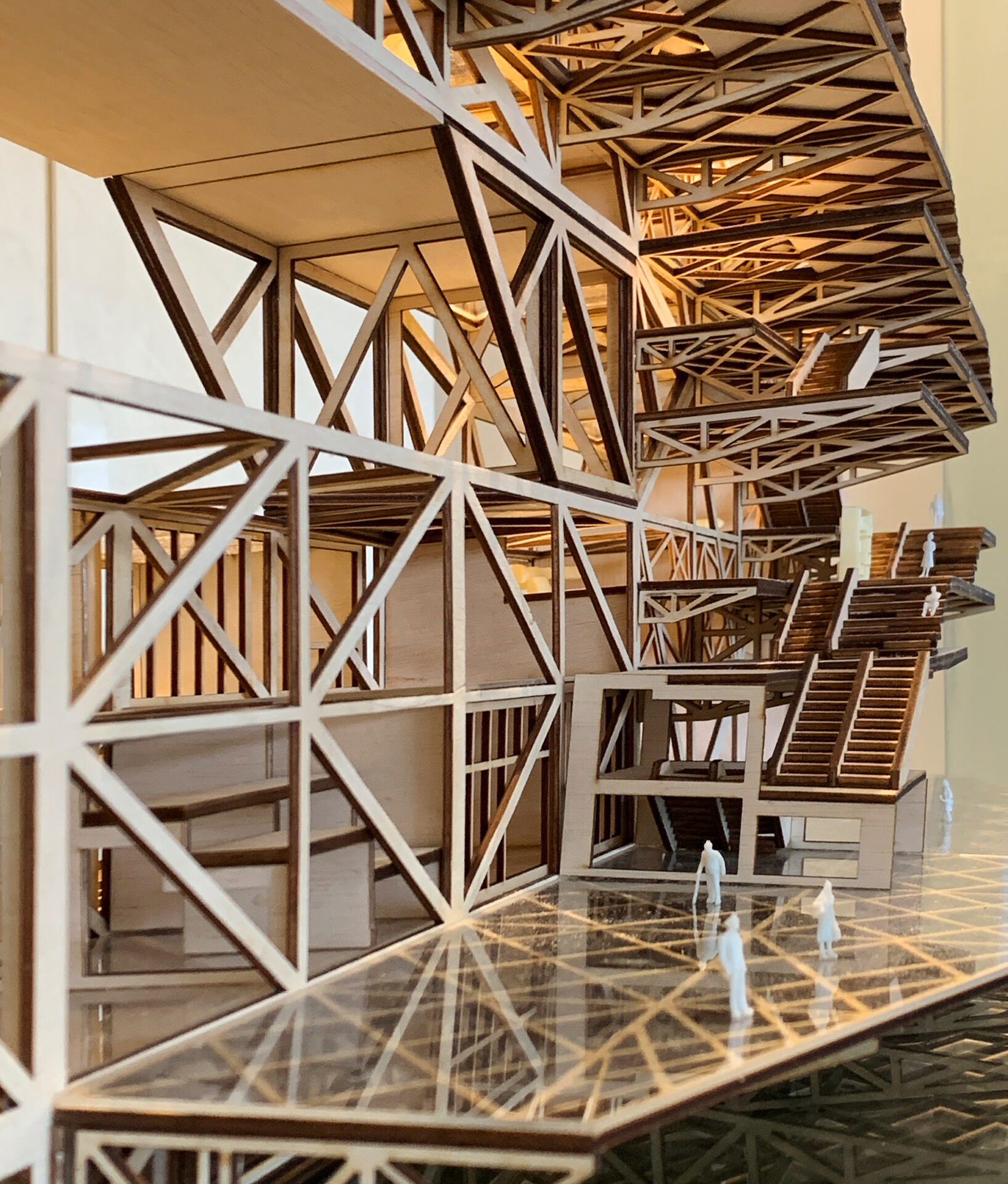
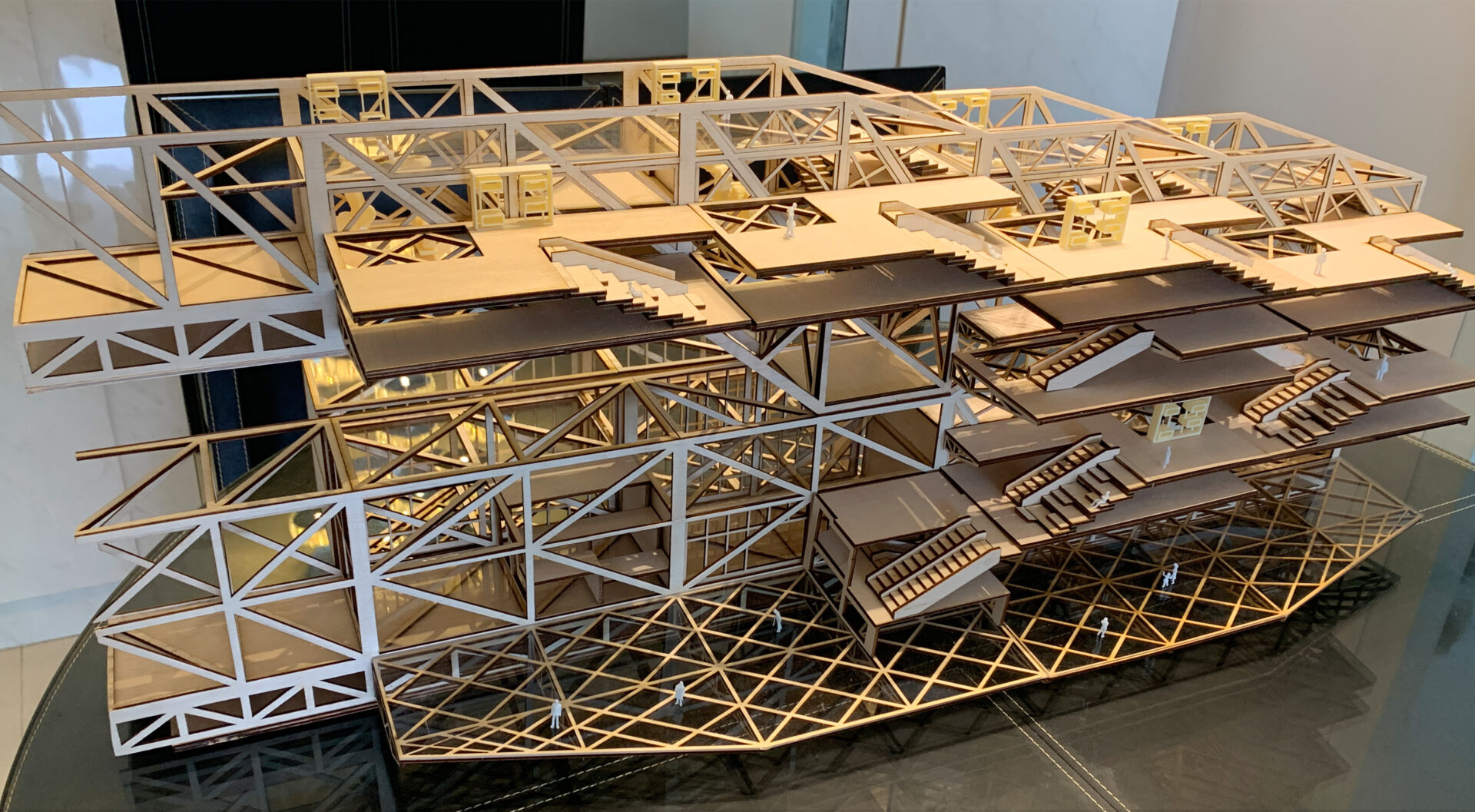
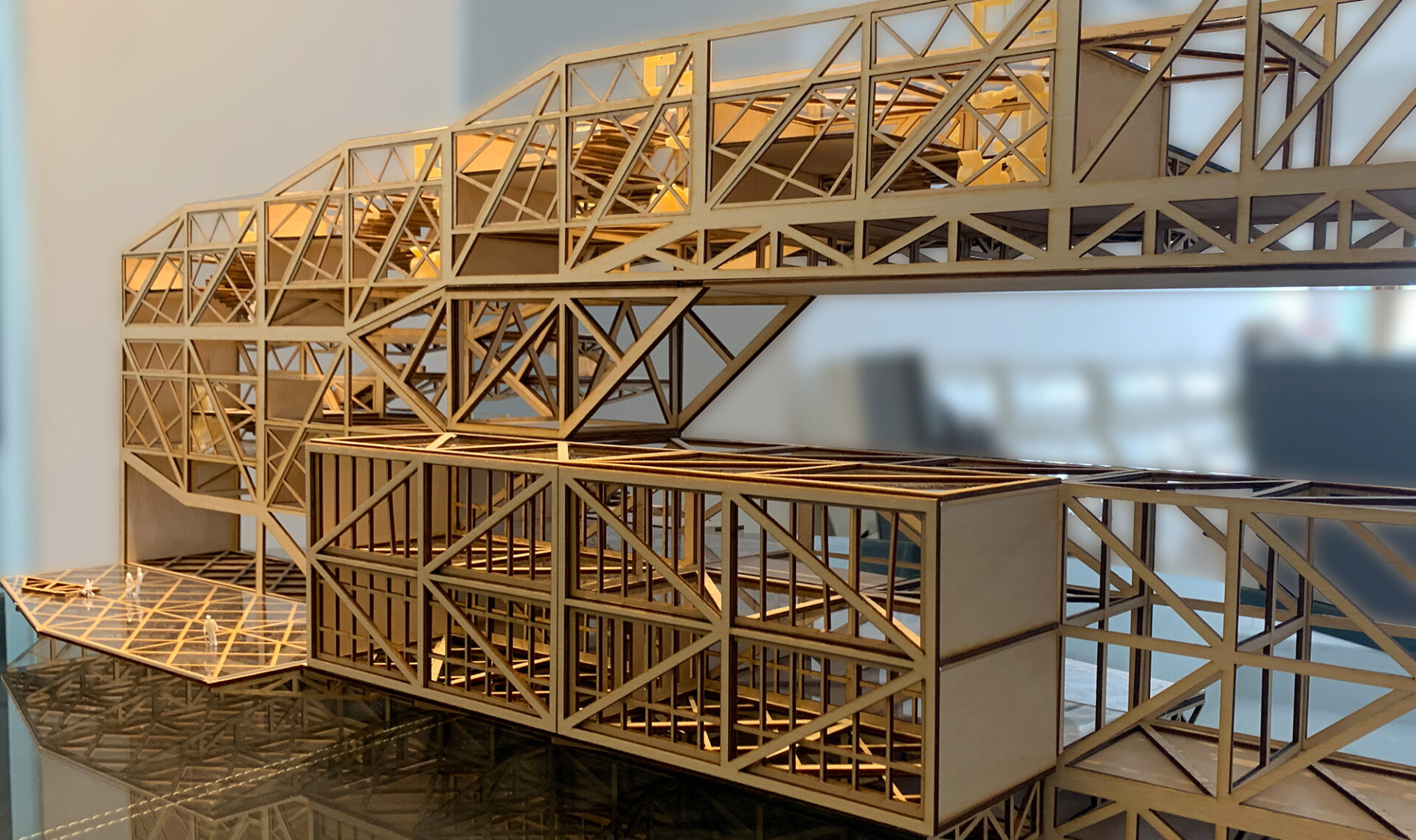
Supervisor's comments:
This thesis eschewed the notion of deep plan factories with large production lines and supermalls depending on high occupancy traffic which is unsuitable for pandemic safety practices. Instead, high value-add prototyping incubators and micro-factories are proposed as new production spaces integrated with vertical retail streets on external balcony walkways open to ventilation and light. The outcomes are twofold: first, the retail displays are part of an accessible facade doubling up as promotional areas at enlarged rampway/escalator landings; second, the product displays are co-located with their prototyping and production facilities accommodating educational activities and public participation in creative production that is not confined to the realm of expert designers. Such a housing block integrated model with a ( home studio-workshop-lab-factory-digitally assisted retail shop) allows IP creation alongside FDI in local enterprise without the large scale JTC infrastructure susceptible to undercapacity operations in pandemic futures.
- Assoc. Prof. Joseph Lim (Dr.)